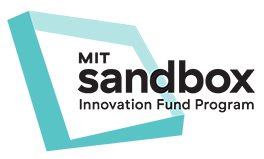MIT DHIVE Down Syndrome track
A Deep Dive into Healthcare Entrepreneurship
DHIVE Down Syndrome Track
The MIT DHIVE Down Syndrome Track, offered in partnership with the MIT Deshpande Center, is a new and exciting internship opportunity focused on developing student-led entrepreneurial solutions that enhance the lives of people with Down Syndrome and different intellectual abilities or other challenges.
Participants will gain insights from knowledgeable experts on key needs and challenges, engage in brainstorming and ideation activities, and learn from seasoned entrepreneurs how to transform ideas into viable solutions. This track is open to undergraduate and graduate students.
By increasing awareness about Down Syndrome and associated needs among MIT students, the program brings together an engaged community excited to explore market opportunities for innovative solutions that improve life for people with Down Syndrome and associated disabilities.
Applications are now closed, but fill out our interest form for future opportunities.
Dive into Healthcare Innovation and Venture Exploration (DHIVE)
View Other DHIVE Summer 2022 Tracks:
Long Covid & Lyme Disease
Inflammatory Bowel Disease
DHIVE Down Syndrome IAP 2023 Program
Applications will be open soon.
3-week program Jan 9 - Jan 28
Participation options:
Paid Internship: part-time or full-time internships for MIT undergraduate and graduate students
Participants:
MIT graduate students who are unable to commit 20 hours per week as a paid intern are welcome to apply and participate
Non-MIT students are welcome to apply and participate
Educational talks focused on the challenges and unmet needs of people with Down Syndrome and similar disabilities
Entrepreneurship-focused workshops and mentorship
Potential for continued support in MIT Sandbox
Potential for continued support through the Deshpande Center Technology to Improve Ability Program
Program Hourly Rate:$15/hour
Want to connect and know more about the program?
email dhive-ops@mit.edu
Unmet Needs of People with Down Syndrome
Down Syndrome is a genetic condition where a person has an extra copy of chromosome 21. This additional chromosome affects physical and cognitive development. There are still gaps in knowledge on the molecular and cellular level of why Down syndrome occurs.
The unmet needs for people with Down syndrome can be categorized into medical conditions, cognitive ability, physical ability, health, and independence. Potential areas of interest include:
Improving muscle tone and physical ability and activity
Improving cognitive ability
Improving communication ability
Enhancing independent living ability
Improving health
View the Deshpande Center Technology to Improve Ability Program overview for more detail about Down Syndrome and improving the quality of life for people with disabilities.
Learn More About Down Syndrome
MIT Alana Down Syndrome Center aims to deepen knowledge about Down syndrome and to improve health, autonomy and inclusion of people with this genetic condition
On cognitive differences:
Down syndrome: Cognitive and behavioral functioning across the lifespan, American Journal of Medical Genetics, May 2015
On communications changes:
Language Characteristics of Individuals with Down Syndrome, US National Library of Medicine National Institutes of Health, April 2009.
Who Should Apply
Individuals who have a novel idea on how to address a particular need or challenge related to Down Syndrome or similar disabilities
Individuals who have expertise in proven technologies and are interested in applying their knowledge to address an unmet need related to Down Syndrome or similar disabilities
Individuals interested in healthcare entrepreneurship who want to explore potential topics/problems individually or by joining an existing team
Current or recent MIT Sandbox team members interested in exploring the application of their concept to address a particular need or challenge related to Down Syndrome or similar disabilities
Eligibility
Paid Internship:
Degree-seeking MIT graduate and undergraduate students from any department who can commit at least 20 hours/week.
MIT graduate students on RAship who can devote 10 hours per week.
Unpaid Internship:
Anyone interested in biomedical innovation who is able to devote at least 10 hours per week.
We welcome post-docs, special students, exchange students, non-MIT students, and non-students
Recent Program Speakers
Most DHIVE expert talks are recorded. We are happy to share any recordings with DHIVE participants/potential participants. Email dhive-ops@mit.edu with your request.
Down Syndrome: Meeting Medical and Developmental Needs
Nicole Baumer, MD, MEd | Director of Boston Children's Hospital Down Syndrome Program; January 10th, 2022
Improving Health Care Maintenance in Down Syndrome
Stephanie L. Santoro, M.D. | Director of Quality Improvement Research, MGH Down Syndrome Program; January 11th, 2022
Weight Management and Associated Conditions in Down Syndrome
Nicolas Oreskovic, MD, MPH | Medical Director, iCMP, MGH; January 11th, 2022
The Evolving Landscape of Down Syndrome Associated Alzheimer’s Disease
James Hendrix & Hampus Hillerstrom | CSO and CEO of LuMind; January 12th, 2022
Developments in Down syndrome and the Impact on Achieving One’s Potential
Linda Patel, PsyD, Assistant Professor | Department of Psychiatry | University of Colorado School of Medicine; January 13th, 2022




